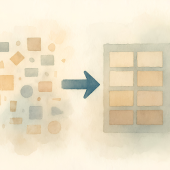Many recent law school grads and lawyers in transition ask me the same question: What will give my legal career an edge? How can I best succeed? Becoming an expert in an emerging problem, technology, or trend is an excellent way to access interesting opportunities and ultimately stand out. As a young lawyer, I have also found that focusing on emerging topics liberates my legal career from being defined by my age.
Blockchain is an emerging technology that any lawyer should highly consider understanding. Blockchain technology is predicted to be the most disruptive technology since the advent of the internet. While blockchain is most known for its role in cryptocurrency like Bitcoin, there are also various sectors that will be affected as well.
What is blockchain?
Blockchain technology may radically change the way we manage transactions — of all kinds, not just financial. Blockchain is a distributed-ledger technology. The technology consists of digital records and encrypted (cryptographically hashed) data stored in the form of blocks in the blockchain.
The ledger is not under any control and operates by consensus. This is different from a regular transaction ledger that is maintained by one entity (e.g., a bank) and audited by another entity (e.g., a reliable intermediary). Blockchain permits all parties to have a copy of the ledger and verify the status of the transaction.
Of course, this is by no means a comprehensive explanation of blockchain technology, but a brief overview is helpful to understand its impact on different industries. This technology provides the transparent, decentralized, safe, and efficient transactions among organizations. It may upset many industries and fields in the upcoming years.
Banking and payments
Blockchain technology has been tested and implemented by the financial industry to reduce costs and improve the inefficiencies in the operation of financial transactions. Many believe that blockchain will do the same thing to banks that the internet did to media. Bitcoin, a blockchain-based cryptocurrency, helps millions of people around the world have access to financial services. It also allows people to transfer money across borders instantly with relatively low charges. Some banks like Barclays are now working on adopting blockchain technology to improve their business operations and make them more secure.
Security technology
Blockchain data is confirmed and encrypted using complex cryptography. This makes the data less exposed to hackers or alteration without authorization. It is not hard to imagine that blockchain will affect security technology. Data breaches are a nearly inevitable challenge for every company, so security solutions are in high demand and effective solutions are more than welcome.
Research forecasting
Blockchain may change the process of research, processing, analysis, and forecasting. This technology can be used to place and monitor bets on any platform — from sports to stocks — in a decentralized manner.
Real estate
Blockchain technology may illuminate the need for paper-based record keeping. This may be used for real estate record keeping because it helps to track and confirm ownership, ensure the accuracy of documents, and streamline property transfers.
Healthcare
The healthcare sector may also be affected by blockchain technology. Healthcare facilities such as hospitals have issues securely storing and sharing data with one another efficiently to encourage a much-needed dialog among stakeholders and streamline data sharing. As such, they are regular victims of breaches. Blockchain technology may help patients and authorized healthcare professionals safely store and share data. It may also improve data security and allow for faster and more accurate diagnoses, efficient treatment, and improved outcomes.
With so many industries facing disruption from the blockchain revolution, it’s easy to see how any lawyer can benefit from learning more about this emerging technology. The legal industry is no exception. Legal roles may be transformed in many ways by blockchain technology. Lawyers who are prepared to embrace these changes will benefit from learning more about blockchain and even adopting it in their practices.
Most lawmakers, regulators, and policymakers are in the early mode of understanding the changes blockchain may produce, so any knowledge gained now will be a significant advantage. So, what can lawyers do to learn more about blockchain?
1. Have a good fundamental grasp of blockchain
Many books will give you an overview, history, and evaluation of blockchain technologies. A few highly recommended books include:
- Blockchain Revolution: How the Technology Behind Bitcoin Is Changing Money, Business, and the World by Alex Tapscott and Don Tapscott;
- The Blockchain Business: Application of the Next Internet Technology by William Mougayar;
- Blockchain for Beginners: Guide to Understanding the Foundation and Basics of the Revolutionary Blockchain Technology by Scott Marks;
- Blockchain: Ultimate guide to understanding blockchain, bitcoin, cryptocurrencies, smart contracts and the future of money by Mark Gates; and,
- Ethereum: Blockchains, Digital Assets, Smart Contracts, Decentralized Autonomous Organizations by Henning Diedrich.
2. Stay updated
Once you have a grasp on the fundamentals of blockchain technology, make sure you stay up to date. The nature of technology is that it is rapidly developing. The best way to stay updated is by listening to podcasts and reading blog posts. A great starting point is listening to Forbes podcast Unchained, hosted by Laura Shin. There is also the Bitcoin Foundation blog. Companies and firms may also have helpful blogs, such as IBM’s Blockchain Unleashed. Blogs and podcasts have varying levels of technicality, so don’t get frustrated if you feel that information is going over your head. It may take a while to build enough technical knowledge, but even a more business and policy-oriented knowledge base will be helpful.
3. Get more information
As you learn more about blockchain technology, you will likely find a few specific topics you would like to learn more about. Once you zero in on the industry or application consider signing up for the updates from a relevant regulator, such as the US Securities and Exchange Commission (SEC). Almost certainly we will see more blockchain guidance from them soon.
To start, LinkedIn Collections and other online resources offer a bevy of blockchain topics. If you have time, you can also learn more by attending lectures on blockchain topics. You can also start a monthly “book club” in your firm or local legal community. Universities, including your alma mater, may also have blockchain groups you can join. For example, University of California, Berkeley has Blockchain at Berkeley, which organizes meetups, tech talks, tutorials, and workshops for students, alumni, and community members who are interested in learning more about blockchain.
These three steps will put you in an excellent position to learn more about blockchain and give your clients — and legal career — a much-needed advantage. Although the learning curve may be steep, your efforts will pay off with an enhanced legal practice, a more effective role as a trusted advisor, and a whole new world of practice opportunities. Ultimately, the future of blockchain is now. Although blockchain has been dismissed as a fleeting trend or mere hype, the lawyers who put in the work now will reap the benefits of their blockchain expertise in the coming years of disruption.




